
Eva Selina Laura Gore-Booth was an Irish poet, theologian, and dramatist, and a committed suffragist, social worker and labour activist. She was born at Lissadell House, County Sligo, the younger sister of Constance Gore-Booth, later known as the Countess Markievicz.
The Minorities Research Group (MRG) was the first organisation to openly advocate the interests of lesbians in the United Kingdom. It was founded by four women who got together in response to an article that was published in the magazine Twentieth Century. The group published the Minorities Research Group Newsletter, and went on to publish its own lesbian magazine called Arena Three that provided a lifeline to remote lesbians around the country.

Arthur Stuart-Menteth Hutchinson, commonly known by his initials A. S. M. Hutchinson, was a British novelist.
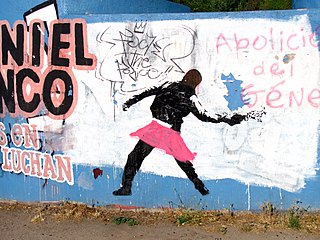
Postgenderism is a social, political and cultural movement which arose from the eroding of the cultural, psychological, and social role of gender, and an argument for why the erosion of binary gender will be liberatory.
The United Gold Coast Convention (UGCC) was first nationalist movement with the aim of self-government " in the shortest possible time" founded in August 1947 by educated Africans such as J.B. Danquah, A.G. Grant, R.A. Awoonor-Williams, Edward Akufo Addo, and others, the leadership of the organisation called for the replacement of Chiefs on the Legislative Council with educated persons. whose aim was to bring about Ghanaian independence from their British colonial masters after the Second World War. The United Gold Coast Convention appointed its leaders to include Kwame Nkrumah, who was the Secretary General. However, upon an allegation for plans against Nkrumah's leadership, he was arrested and jailed. The UGCC leadership broke up and Kwame Nkrumah went on a separate way to set up the Convention People's Party (CPP) for the purpose of self-governance. The UGCC was founded in Saltpond.
Kenric was established in 1965 and is made up of a network of social groups for lesbians throughout the United Kingdom. Members are of all ages, although mainly due to the long-running nature of the network it is most popular with women over 30 years old. It is often the only lesbian social outlet in areas where there is not much visible gay and lesbian presence.
Esme Ross-Langley, was a British writer, best known as the founder of the Minorities Research Group and Arena Three.
Margaret P. Arrowsmith was a British author and peace campaigner. She was a co-founder of the Campaign for Nuclear Disarmament (CND) in 1957.

Edith Shackleton Heald was a British journalist who was the last mistress of the poet W. B. Yeats from 1937 until his death in 1939, and lived with the lesbian and gender non-conforming artist Gluck from 1944 until her death in 1976.
Amaranth Borsuk is an American poet and educator known for her experiments with textual materiality and digital poetry. She is currently an associate professor at the University of Washington Bothell's School of Interdisciplinary Arts & Sciences, where she teaches undergraduate courses on poetry, philology, and experimental writing. She also serves as the Chair of the school's M.F.A. program in Creative Writing, which she co-chaired from 2018 to 2022.
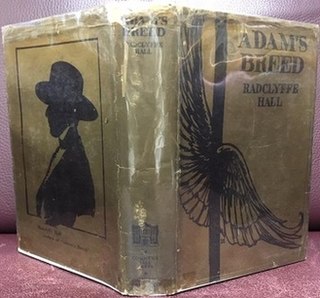
Adam's Breed was a 1926 novel by the English writer Radclyffe Hall. On its publication it won the James Tait Black Memorial Prize for fiction and the Femina Vie Heureuse prize for best English novel. It tells the story of a British-Italian waiter, a member of the Lost Generation disillusioned by life during and after World War I, who becomes a hermit.
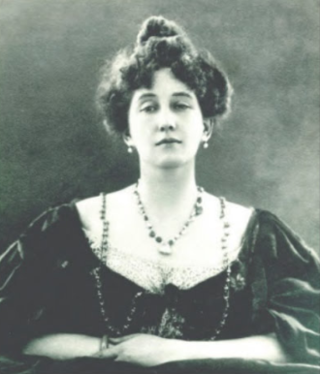
Mabel Veronica Hatch Batten was a British singer of lieder.

Dorothy Mary L. Burroughes was a British artist known as a painter, illustrator and linocut artist. She designed posters and wrote and illustrated a series of children's books.

Celia Wray was an English suffragette and an architect.

Urania was a privately circulated feminist gender studies journal, published between 1916 and 1940. Editors included Eva Gore-Booth, Esther Roper, Irene Clyde, Dorothy Cornish, and Jessey Wade. It was published bimonthly from 1916 to 1920, then triannually due to high costs.
Beatrice the Sixteenth: Being the Personal Narrative of Mary Hatherley, M.B., Explorer and Geographer is a 1909 feminist utopian novel by the English lawyer, writer and activist Irene Clyde—who has been remembered as non-binary, transgender, or as a trans woman by some writers—about a time traveller who discovers a lost world, which contains a postgender society.
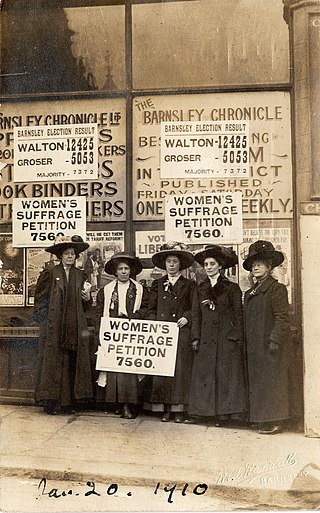
Alice Laura Embleton was one of the first women to study sciences at the University College of South Wales and Monmouthshire, and among the first group of women to be appointed Fellows of the Linnean Society in 1905. A biologist and zoologist, Embleton developed work on pesticides to improve crop production. She was also a noted suffragist.
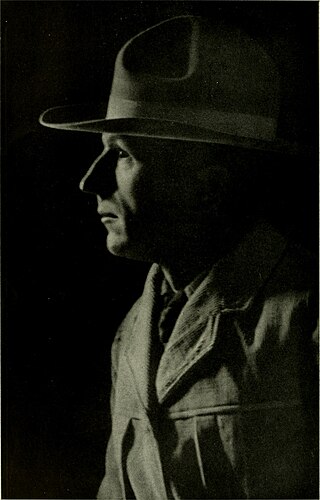
Louis Benton Akin (1868–1913) was an American painter and illustrator of the early twentieth century. He is best known for his landscapes of the Grand Canyon and his depictions of Hopi cultural life.
Netprov is "networked, improvised literature" or collaborative literary improvisations performed on the internet. The word netprov is a portmanteau of "networked" and "improv" as in improvisational theatre. Netprov is considered a genre of electronic literature.

The Izumo clan is a Japanese noble family descended from Ame no Hohi who used to rule Izumo Province and run Izumo Taisha today.












